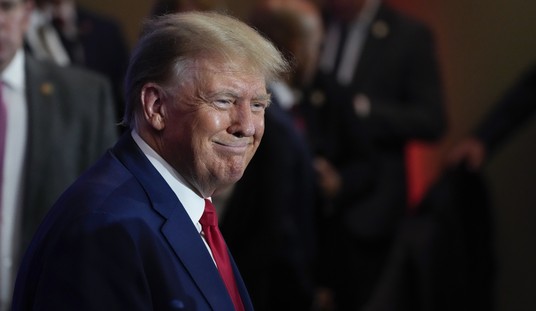Kansas City Chiefs kicker Harrison Butker gave a commencement address this month at Benedictine University in Kansas. Butker is a devout Catholic and was speaking at a Catholic institution. As such, many of his observations, such as his expressed preference for the traditional Latin Mass, were intended for a Catholic audience.
But other points Butker made had broader applicability, and quite a few of them provoked blowback, including his reference to the "tyranny of diversity, equity and inclusion." The National Football League distanced itself immediately from Butker's remarks. "[Butker's] views are not those of the NFL as an organization," said Jonathan Beane, NFL's senior vice president and chief diversity and inclusion officer. "The NFL is steadfast in our commitment to inclusion, which only makes our league stronger."
It's worth noting that (a) the NFL is not a Catholic organization, and (b) the league has had its share of players arrested for domestic violence and convicted of wire fraud, forgery, money laundering, counterfeiting, tax evasion, drug trafficking, driving while intoxicated, burglary, armed robbery, aggravated assault, rape, manslaughter and even murder. Perhaps it's a bad look to criticize a player calling for men to be God-fearing, responsible husbands and fathers.
But it's also an opportunity to observe that the terms "diversity" and "inclusion," like "choice" -- another contemporary buzzword -- have little meaning without context.
For example, to say I'm "pro-choice" explains nothing unless I denote the choices that I'm in favor of someone being able to make. Either the choices themselves have no moral significance ("Burgers or pasta for dinner tonight?"), or else the available choices conform to my own values in some way. Consider: Do I think someone should have the choice to smother Granny with a pillow because she has dementia? I can't say "yes," unless I believe killing someone with dementia is morally good -- or at least morally neutral. Saying, "I wouldn't kill my own grandmother, but I think anyone who wants to should be able to" makes the absurdity clearer.
Recommended
The same is true of "diversity." We hear constantly that "diversity is our strength." But "diversity," without more, is not necessarily a "strength" at all. If I were asked to put together a team to solve a complex problem, and I chose a 6-year-old child, a heroin addict, a comatose patient and a homeless person suffering from severe mental illness, that group would certainly be diverse. But it would not be "strong" -- if by that we mean able to solve the problem. Nor would the group be any "stronger" if it consisted of men and women or people of different racial and ethnic backgrounds.
That hypothetical may seem extreme. But less extreme yet equally clear proof is available anywhere we look. In Europe, for example, hundreds of thousands of young men have emigrated from cultures where women are deprived of basic human rights, swathed head to toe in mandated coverings; those who object are targets for sexual assault, arrest and imprisonment. The presence of those men has transformed countries like Sweden, Germany and England; once known for their low crime rates, they now have skyrocketing numbers of rape and other violence.
Similarly, millions of migrants have been encouraged by the Biden administration to enter the United States illegally, despite the importation of drugs killing 100,000-plus Americans a year, or the human trafficking -- including the trafficking of children (the government admitted it lost track of 85,000 children who entered the country illegally between 2021 and 2023), or the other crimes committed by illegal immigrants. (The murder of Georgia college student Laken Riley generated national outrage, as did a series of videos created by a Venezuelan migrant explaining how to exploit "squatting" laws to take possession of homes and sell them out from under their rightful owners.)
Thus, immigration per se is not our "strength," any more than "diversity" is. It was, arguably, when we demanded that immigrants assimilate and live by American values. But that would mean defending our culture, which the powerful classes in America are loath to do, preferring instead to condemn it as "patriarchal," "white supremacist" and "systemically racist."
In fact, the attributes which have made the country peaceful and prosperous -- initiative, industry, self-reliance, honesty, integrity, personal responsibility, respect for others, for property and the rule of law, protecting families and children -- can be and have been the lived experience of people from nearly every race, ethnicity and culture on the planet.
However, the diverse experiences and perspectives that we aspire to bring together for the betterment of all do presuppose not only basic competence but a commitment to virtuous behavior and - more importantly - a set of common values and generalized agreement on what virtuous behavior is.
America was founded on explicitly Judeo-Christian principles and populated by people who believed in and lived by them. Furthermore, the existence of shared values and a common belief in the ultimate source of those values made it possible to appeal to that source when the country's policies fell short of our ideals, as exemplified by calls for the abolition of slavery or the improvement of conditions for factory workers.
But those controlling today's cultural messaging want the definition of "values" to be relative and dismiss "virtue" as antiquated. In place of substantive definitions, we now have empty platitudes like "diversity," "inclusion" and "compassion"; catch-all phrases to be tossed out as accusations whenever anyone points out the painful realities associated with poor choices, or cultural attitudes and behaviors that are antithetical to human flourishing.
Butker dared to say what too few will these days -- that the source of America's values and our definition of virtue is the Bible and Christianity. Those are our roots and they are our strength. People of diverse backgrounds who adhere to the principles derived from them do bring depth and richness to the American experience, and we should welcome them.
Conversely, we can already see what is wrought when we abandon those principles: discord, violence, societal breakdown.
Chaos.























Join the conversation as a VIP Member